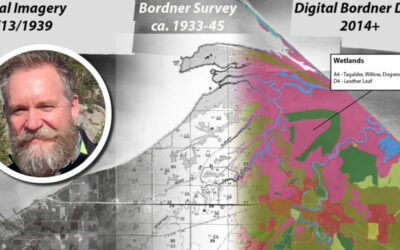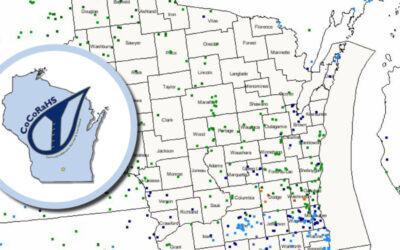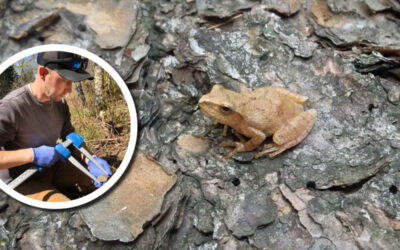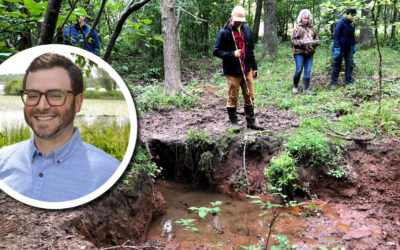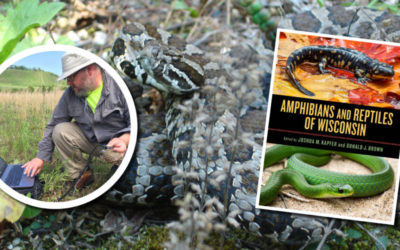Wetland Coffee Break
The Wetland Coffee Break series helps keep our community of wetland lovers connected and learning about wetlands throughout the year, from anywhere! Bring your coffee and learn about wetlands, the plants and animals that call them home, and the many natural benefits they provide to our communities. Sessions are held on Zoom and feature time for audience Q&A.
See below for a list of upcoming presentations and to register. Once you register, you’ll receive an automatic email including the URL link and password you’ll need to access the meeting. We record and post each presentation so you can watch any that you missed live. You’ll find links to these recordings below, and you can also find them on our Facebook page.
We are grateful to all of the presenters for sharing their knowledge and expertise and to everyone interested in learning more about wetlands! If you are interested in giving a Wetland Coffee Break presentation, or if you have a wetland topic you’d like to see covered, please contact Katie.Beilfuss@wisconsinwetlands.org.
We are now able to provide attendance verification to Wetland Coffee Break audience members who attend the live sessions and request this service. We created this mechanism in response to requests from members of the Wetland Coffee Break audience who would like to apply their Wetland Coffee Break learning to their continuing education or certification requirements. Learn more about how to receive attendance verification here.

Register for a Wetland Coffee Break
Carnivorous plants of the Northwoods
Emily Stone, Naturalist & Education Director, Cable Natural History Museum
Friday, March 13, 2026
10:30 am CT
Description
In some low-nutrient wetlands, plants reverse the food chain and become carnivorous to meet their needs. Discover the beauty and the impressive adaptations of these charismatic Northwoods residents with naturalist Emily Stone.
Emily Stone is a naturalist by birth, training, profession, and passion. After earning a Field Naturalist master’s degree from the University of Vermont with a wetland-focused project, Emily became the Naturalist/Education Director at the Cable Natural History Museum in Cable, Wisconsin. Emily writes a weekly “Natural Connections” column published in more than 20 local and regional newspapers. Her third Natural Connections book was published in November 2025.
Common Carex of wet open ground
Aaron Feggestad, Stantec
Friday, March 27, 2026
10:30 am CT
Description
Genus Carex, the true sedges, form a fascinating and diverse group of plants. An evolutionary success story, Carex is the most species-rich genus in Wisconsin with over 150 species. This introductory talk will focus on field identification characteristics of widely ranging Carex species of wet open ground (wet prairie, sedge meadows, fen, marsh). The content will focus on subgenus Carex and will be useful for anyone looking to build upon their knowledge of common species.
Aaron Feggestad has been a practicing wetland professional for the past 20+ years, primarily working in Wisconsin and the Great Lakes Region as a consulting ecologist, volunteer, and educator. Fascinated by the role of Carex in natural area function, and the importance of Carex in the restoration of many types of natural communities, he is working towards a goal of cataloging nearly all the 158 species that occur within the state.
Watch previous presentations
Click “Older Entries” below to see more past presentations, or view our Google Sheet index of past presentations here.
Wetland Coffee Break: Discovering historic Wisconsin geospatial data
A photo of speaker Howard Veregin over a map that shows one landscape with several different maps. Starting on the right with 1939 aerial imagery, then a survey map (the Bordner Survey) ca. 1933-1945, then into the colorful Digital Bordner Data from 2014 and onward with ‘wetlands’ pointed out.
Wetland Coffee Break: How you can help gather better information about rainfall and runoff through the “CoCoRaHS” program
Having accurate and local rainfall data impacts forecast accuracy and issue and timely and accurate flood watches and warnings. Local rainfall data also improves the modeling that communities use in their emergency management and restoration planning.
Wetland Coffee Break: The Wisconsin Frog & Toad Survey
Join DNR conservation biologist Andrew Badje to learn more about how you can become a “frogger” by lending your ears to monitor and help conserve frogs and toads in all corners of Wisconsin.
Wetland Coffee Break: Karst hydrogeology & wetlands
Have you ever heard of “karst”? Hydrogeologist Maureen Muldoon will provide an introduction to the hydrogeology of Wisconsin’s karst landscapes. Geologist Grace Graham will talk about the relationship between karst springs and wetlands.
Wetland Coffee Break: Piloting natural flood management in the Lake Superior basin
Kyle will provide an overview of a natural flood management initiative in the Lake Superior Basin aiming to reduce flood risks and create climate-resilient infrastructure.
Wetland Coffee Break: Amphibians and reptiles of Wisconsin
Dr. Joshua Kapfer is co-author of the recently-published volume “Amphibian and Reptiles of Wisconsin,” assembled by an expert team of editors and contributors. Learn more about the information in this new book and hear stories about some of the amphibians and reptiles it describes.

